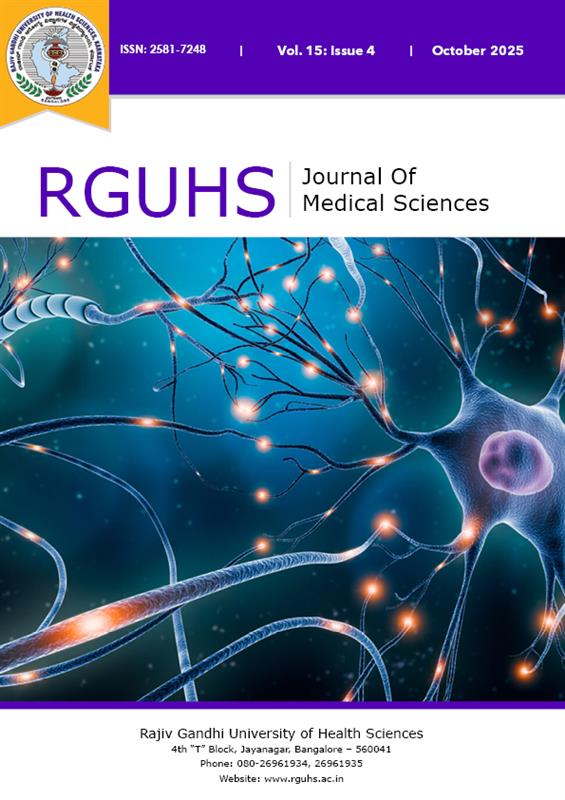
RGUHS Nat. J. Pub. Heal. Sci Vol: 15 Issue: 4 eISSN: pISSN
Dear Authors,
We invite you to watch this comprehensive video guide on the process of submitting your article online. This video will provide you with step-by-step instructions to ensure a smooth and successful submission.
Thank you for your attention and cooperation.
Ravindra Devani1 , Sagar Kathare2 , M A Sagri3
Professor and Head , 2Junior resident , 3Professor , Department of Surgery, Khaja Banda Nawaz Institute of Medical Sciences, Kalaburgi.
Sagar S Kathare
Jagruthi Colony ,Ring Road
Kalaburgi 585105
sagarskathare@gmail.com

Abstract
Objective: To study the clinical course and to assess the severity of acute pancreatitis and its management based on Glasgow prognostic score.
Material and methods: It is a prospective study conducted on 50 consecutive cases of acute pancreatitis admitted to the hospital attached to Khaja Banda Nawaz Institute of Medical Sciences, Kalaburgi.
Results: There were 40 male and 10 female (M : F ~ 4 : 1) patients. The peak incidence was in the fourth decade with a median age of 41 years. The commonest etiology was alcohol abuse (70%). It was followed by gallstones (20%), and hypertriglyceridemia (4%). Remaining cases were idiopathic (4%) and hypocalcaemia (2%). Glasgow scoring helped to categorize the patients into mild and severe cases which led to early diagnosis, management and reduction in mortality.
Conclusion: The incidence of acute pancreatitis is found to be frequent in younger age.. Glasgow Scoring system helps to identify patients who are more likely to have a severe attack of acute pancreatitis requiring urgent treatment. Severe cases should be managed in well equipped ICU. Timely intervention by endoscopist and surgeon are crucial to reduce morbidity and mortality.
Keywords
Downloads
-
1FullTextPDF
Article
None
Supporting File
References
None